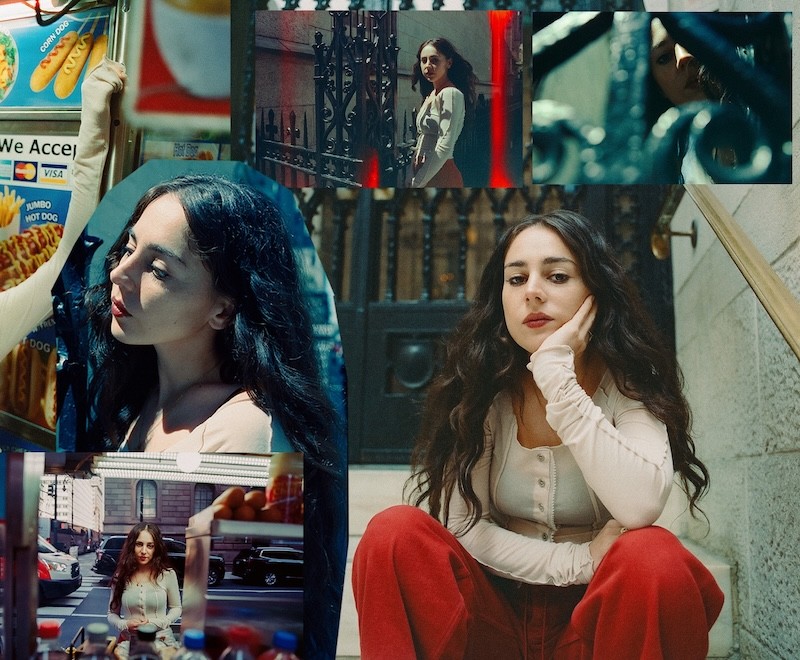
There’s a certain mythology that forms around an artist when they’ve been writing publicly about their pain long enough - fan interpretations, past tweets, annotations built on speculation. Samia knows this better than most. But instead of resisting the mythmaking, she leans in. On 'Bloodless', her third full-length album, she interrogates not just emotional wreckage but the impulse to turn it into narrative. “It’s a clinical pursuit of emptiness,” she says, describing both the image at the center of the album - cattle mutilation - and the impulse to keep explaining yourself to the world.
Bloodless is rich with moments built to be picked apart: a floating chorus, a gut-punch line, a pop culture reference that lingers like perfume. But Samia doesn’t hand over a complete puzzle - she gives you pieces, and in doing so, controls what remains unsaid.
Because what she’s made isn’t simply a diary. It’s a movie. And a painting. And an admission. Samia describes it as a record about watching. About resisting the urge to interrupt. "I like the lore,” she jokes. But the truth is, she’s never sounded more in command.
Ahead of the release of 'Bloodless', Coup de Main met with Samia on a sunny Friday afternoon in New York City to talk about performance, ideal self, and the beauty of existing in the unknown...
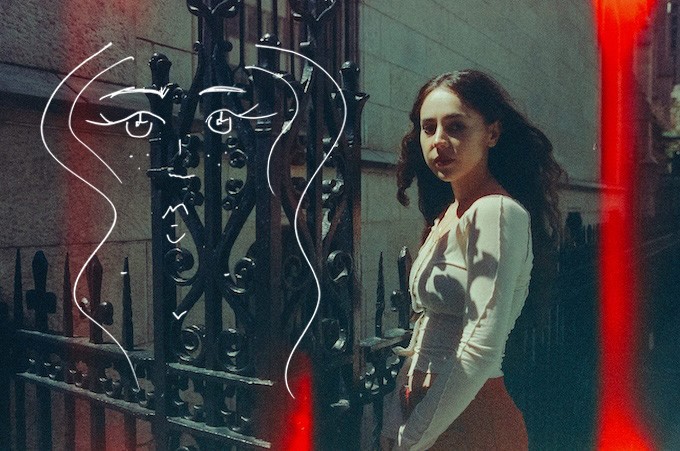
COUP DE MAIN: How are you feeling today?
SAMIA: It's hard. There's a lot going on. I love your nails.
CDM: Oh, thank you so much. I wore the shoes for you. <points to cow print shoes>
SAMIA: Oh my god!!! The cows!!
CDM: Let’s talk generally—how are you feeling about the album? How did you feel when you finished it? Was it peaceful? Did it feel like a chapter was ending, or something new was beginning?
SAMIA: It was not peaceful. It felt triumphant to finish - just personally - because I had been toiling over the lyrics for a long time. So having that done was really nice. But there were a lot of cooks in the kitchen. I work with my two friends and sometimes we all have strong, conflicting opinions, so it can take months to land on a mix or a lyric.
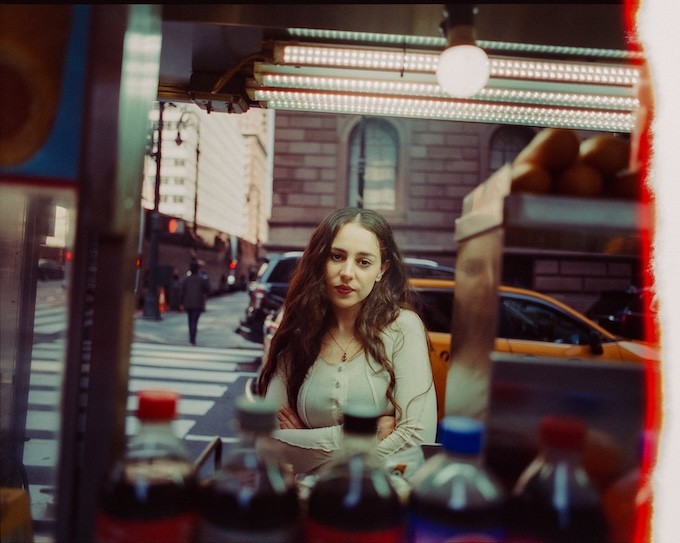
CDM: What does the process look like for you?
SAMIA: I think we're all just a little indecisive, so it takes a second for things to sink in. But we’ve got deadlines and stuff, so we’ll be constantly on Zoom, trying to come up with—
CDM: Like a live word web situation.
SAMIA: Totally. And rarely is there a consensus, but we finished it. We’ve gone back and redone a million things - hopefully unbeknownst to everyone.
CDM: You said it wasn’t peaceful - but was it therapeutic?
SAMIA: Making the music is always so therapeutic. It's the most therapeutic thing. Releasing it is probably the opposite of therapeutic. <laughs> But making it is, yeah.
CDM: I want to talk about some of the lyrics. Selfishly, I’m going to start with 'Bovine Excision'. The line, “I want to be impossible,” really stands out - it feels like a sort of thesis for the rest of the album. What does that line mean to you now, especially in the context of being a woman?
SAMIA: “I want to be impossible,” is the opposite of being a human being. I was really into Unsolved Mysteries, or stories that rely on remaining unsolved to hold meaning. I think the less of yourself you give to other people, the bigger you can become in their minds. The more possibilities there are for you. You don’t feel responsible for your identity, really.
CDM: So, you like when people assign lore based on what little bits of information you give them?
SAMIA: Totally. And I think that only works if you give very little.
CDM: Do you have a favourite unsolved mystery?
SAMIA: Probably bovine excision.
CDM: Yeah, crazy. What a concept.
SAMIA: Where’s the blood?
CDM: Where is the blood?
SAMIA: We don’t know.
CDM: Another lyric I wanted to ask about: “It’s a beautiful party and it’s not mine to ruin," and the weight of responsibility of “don’t do it.” What made you write that? Did you feel like you have a performance you have to uphold?
SAMIA: I think we can create imaginary expectations and assign them to people in our lives. And it’s easy to feel like it’s all in your hands, like, the fate of an evening. It’s easy to feel responsible for everyone else’s happiness, even if you’re totally not. That’s just about feeling like I might be the monster. I might be responsible for the downfall of the evening.

CDM: Do you like being the centre of attention?
SAMIA: No, I absolutely hate being the centre of attention. Funny sort of career choice.
CDM: Do you like birthday parties?
SAMIA: Yeah, I have birthday parties. I used to have like, proper birthday parties.
CDM: And how do you feel? Are you the type to be like, “I’m gonna cry because it’s my birthday,” or “I’m happy to be surrounded by the people I love”?
SAMIA: The only birthdays that have made me really sad are the ones that have been markers of where I’m at in my life, and I haven’t been stoked about where I was at. Just in terms of my relationships. Birthdays really make me think about where I am in life - mostly just like, who’s in my life. And if I wake up on my birthday and I don’t have the people that I need, then it’s not a great birthday.
CDM: Yeah - like you’re trying to track progress by means of something that’s supposed to be a happy occasion.
CDM: I’m gonna move on a little bit to the idea of sense of self. I feel like there’s a lot of existentialism in this album, which definitely resonates with me.
SAMIA: Oh god.
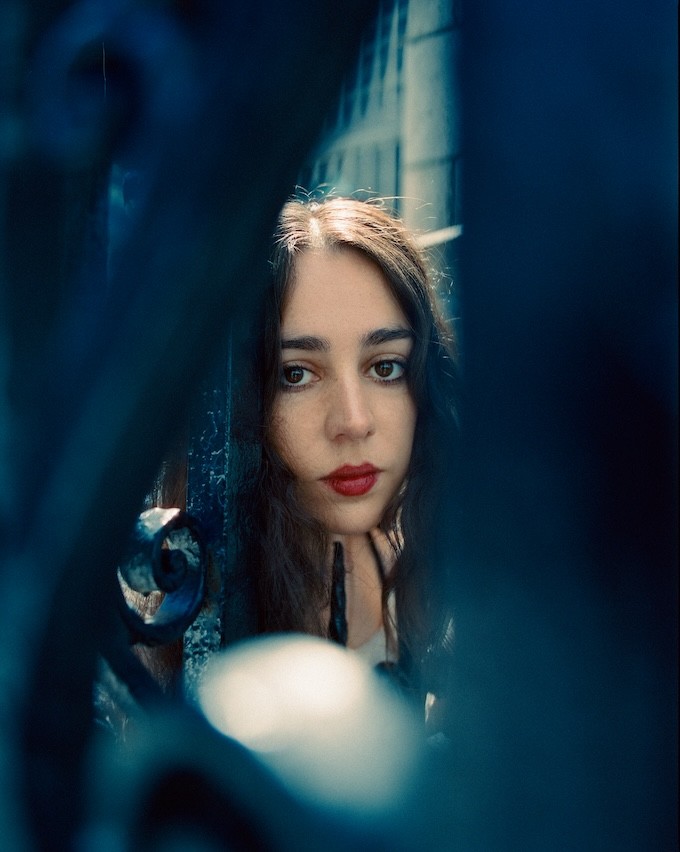
CDM: You talked to Rolling Stone about Kiki Swamp, your alter ego. You’ve said Kiki “lives in an emerald-green wetland. She’s completely unburdened by people’s opinions or expectations.” Kiki is your idealised self.
SAMIA: Oh my god, I can’t believe I did that. <laughs>
CDM: I want to know more about Kiki Swamp.
SAMIA: <laughs> I wish I’d never said a word about Kiki Swamp.
CDM: I want to know why Kiki Swamp is separate from you. Why aren’t Samia and Kiki one and the same?
SAMIA: It’s a confidence thing - which is a lot of what I talk about on this record. It’s identity and whether or not there's some pure and solid self that exists underneath your conditioning. I’ve spent a lot of time looking for that. I’ve had a lot of people tell me to “be myself,” and that sends me into a panic spiral because I don’t know what that means. So yeah, a lot of the album is about accepting the me that comes with all of my influences and everything anyone’s ever said to me, and everything I’ve picked up along the way. … But Kiki Swamp just knows exactly who she is. She walks into a room without questioning it.
CDM: When you’re performing, is that you or is that Kiki Swamp?
SAMIA: I can’t believe I set myself up for this Kiki Swamp narrative. Like Sasha Fierce, oh my god. <laughs> No, it’s me. Because it’s so cathartic and it feels so mutual. Like, I can totally justify getting up on stage and singing because I can see people’s faces and we’re having an interaction. So, it doesn’t feel like it’s in vain.
CDM: Do you feel like you can control perception a little bit in that relationship?
SAMIA: Not at all. But I feel like what I’m doing matters to someone, so it’s worth doing. It makes sense to do… The other pieces of it are sort of like screaming into a void sometimes and hoping people will validate that. And that’s the part that Kiki Swamp can probably do better than I.

CDM: Let’s talk about actual bovine excision. I wonder if this was influenced by your relationship with being a woman - and how there’s often a performance that needs to be put on just because we live in a patriarchal society and we have to interact on rules that have been predestined and defined for us. So, what is “bloodless” on a day-to-day? What’s “self-extraction” in normal interactions for you?
SAMIA: That’s a really good question... Reading a room. Not being too much of any one thing, for fear of locking yourself into that one thing. Being very small. Taking up as little space as possible.
CDM: So that it’s easier to control what people see? If you're just lesser in a room, you're not taking up as much space?
SAMIA: I think it expands the potential of what you could be. It increases the promise of your view. And picking something sort of shrinks you.
CDM: That definitely speaks to a lot of the experiences women have in all parts of their lives - whether it’s their career or relationships.
SAMIA: Totally. I don’t think it really begets connection or anything actually valuable in the end, but it is maybe a defence mechanism or survival instinct.
CDM: If you could adapt 'Bloodless' into the score for a film, what kind of movie, short film, series would it accompany?
SAMIA: Oh my god. I think it would be… oh man. A combination of that show 'Search Party' and the movie 'The Witch' with Anya Taylor-Joy. <points to the A24 script book I’m using to stabilise my notes>
CDM: Good pick then. <gesturing to the book> Do you like that film?
SAMIA: Oh my god, yeah. One of my favourite movies.

CDM: If 'Bloodless' were an object in a museum, what would the tiny gold plaque say?
SAMIA: Probably “Sid’s Fist,” because there’s a song that was inspired by an actual hole in a wall at a venue that was framed.
CDM: Oh yeah - you definitely have a lot of art references in there…
SAMIA: Yeah, and it’s funny art to reference.
CDM: Well, you also have the dancers, right?
SAMIA: Yeah, the Degas dancers. That feels like 'Bloodless' to me—the Degas dancers.
CDM: I think we’re hitting time. So, my last one is kind of just a question that I wanted to ask. Are you into zodiac stuff at all?
SAMIA: Yeah. I don’t know. I don’t know enough, but I’m like - I’ll believe anything.
CDM: There’s so much cattle imagery!
SAMIA: <laughs>
CDM: And then it’s being released in Taurus season - and I’m a Taurus.
SAMIA: Ohhhhhhhh.
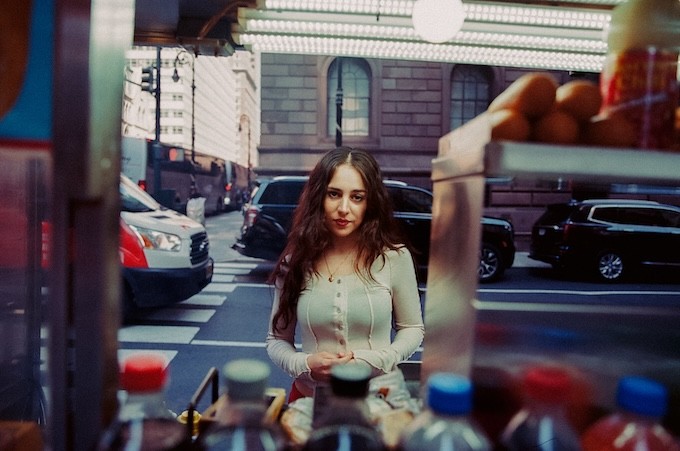
CDM: So, I just feel like there’s a lot here that relates to being a Taurus. Which is laced in this facade of laziness, but is really about finding the right moments to be determined and present. So, it felt really poetic that the album comes out on April 25.
SAMIA: Wow. I’m gonna pretend like that’s on purpose. Yeah, that’s awesome. I have a lot of really important Tauruses in my life too.
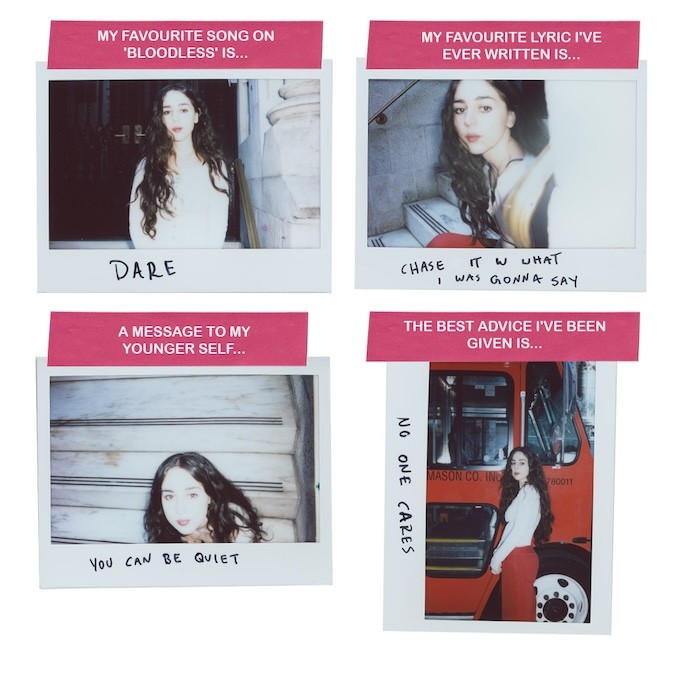
'Bloodless' is out now – watch the video for 'Carousel' below: